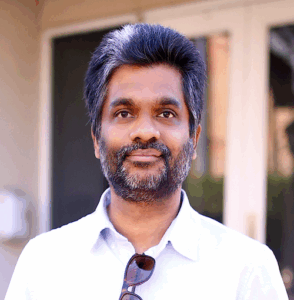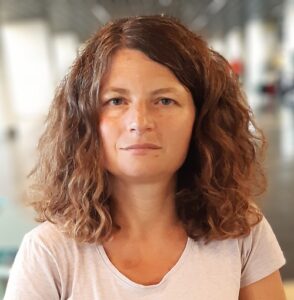Keynote Speakers

Mohit Bansal
University of North Carolina at Chapel Hill
Trustworthy Planning Agents for Collaborative Reasoning and Multimodal Generation
Abstract: In this talk, I will present our journey of developing trustworthy and adaptive AI planning agents that can reliably communicate and collaborate for uncertainty-calibrated reasoning (across diverse domains such as math, commonsense, coding, and tool-use) and for interpretable, controllable multimodal generation (across diverse modalities such as text, images, videos, audio, layouts, etc.). In the first part, we will discuss: (1) how to teach agents to be trustworthy and reliable collaborators via social/pragmatic multi-agent interactions (e.g., confidence calibration via speaker-listener reasoning and learning to balance positive and negative persuasion), as well as (2) how to acquire and improve agent skills needed for efficient and robust perception and action (e.g., learning reusable, verified abstractions over actions & code, and adaptive data generation based on discovered weak skills). In the second part, we will discuss interpretable and controllable multimodal generation via LLM-agents based planning and programming, such as (1) layout-controllable image generation and evaluation via visual programming, (2) consistent video generation via LLM-guided multi-scene planning, targeted corrections, and retrieval-augmented motion adaptation, and (3) interactive, composable any-to-any multimodal generation. We will conclude with examples of improving real-world applications such as medical data reasoning and classroom education engagement.
Bio: Mohit Bansal is the John R. & Louise S. Parker Distinguished Professor of Computer Science at the University of North Carolina at Chapel Hill, where he also directs the MURGe-Lab (UNC-NLP Group). He received his PhD from UC Berkeley and his BTech from IIT Kanpur. A leading researcher in natural language processing and multimodal machine learning, his work spans grounded and embodied semantics, reasoning agents, faithful language generation, and interpretable, efficient deep learning. Professor Bansal’s contributions have been widely recognized through numerous honors, including the Presidential Early Career Award for Scientists and Engineers (PECASE), the DARPA Director’s Fellowship, an NSF CAREER Award, and the IIT Kanpur Young Alumnus Award. He is a Fellow of AAAI and a recipient of best paper awards at top conferences such as ACL, CVPR, and EACL. His research has significantly advanced the development of multimodal generative models and faithful/reliable language generation, with applications in education and health. He has served in prominent leadership roles across the NLP community, including as Program Co-Chair for EMNLP and CoNLL, and as an editor for several major journals.

Marco Dorigo
Université Libre de Bruxelles
From Self-Organization to Control: Steering Robot Swarms
Abstract: Robot swarms promise scalable and robust solutions for applications such as environmental monitoring, search and rescue, and warehouse automation, but their lack of manageability limits practical deployment. Fully self-organized robot swarms, operating without any central coordinating entity, have been widely demonstrated. In such swarms, the decentralized architecture provides high redundancy, and collective behavior emerges indirectly from local interactions. These features yield well-known advantages — such as scalability, fault tolerance through redundancy, and the absence of single points of failure — but also introduce fundamental challenges, most notably the difficulty of managing and influencing the swarm’s behavior. In contrast, centralized systems are easier to design, control, and manage, but suffer from single points of failure and limited scalability.
In this talk, I will begin by summarizing key results from fully self-organized robot swarms, highlighting both their strengths and their inherent limitations. I will then introduce a novel swarm architecture that achieves self-organized hierarchy, combining the strengths of decentralized and centralized approaches. Using a heterogeneous swarm of ground robots and aerial vehicles, I will show how the system self-organizes a dynamic hierarchical control network through local asymmetric communication. I will present experimental results demonstrating that the swarm can autonomously split and merge independently controlled sub-swarms, replace faulty robots anywhere in the hierarchy, and adapt its collective behavior in real time. Importantly, the proposed architecture preserves the key benefits of strict self-organization, including scalability and the interchangeability of individual robots. This approach provides a practical path toward deploying large-scale autonomous swarms in real-world scenarios where both robustness and controllability are essential.
Bio: Marco Dorigo is Co-Director of IRIDIA, the artificial intelligence laboratory at the Université Libre de Bruxelles (ULB), and a leading figure in swarm intelligence and swarm robotics. He is best known as the creator of Ant Colony Optimization (ACO), a landmark algorithm inspired by the collective foraging behavior of ants. First introduced in his 1992 doctoral work at Politecnico di Milano, ACO has since become a foundational method in the field of bio-inspired computation, with wide-ranging applications in routing, scheduling, and network design. Beyond optimization, Professor Dorigo has made major contributions to the field of swarm robotics, helping to shape the development of autonomous systems based on decentralized coordination and collective behavior. His work bridges theory and practice, advancing both the design principles and real-world implementation of intelligent, adaptive multi-agent systems. He is the Founding Editor of Swarm Intelligence and serves on the editorial boards of several leading journals in computational intelligence and robotics. Professor Dorigo has received multiple honors in recognition of his contributions, including the IEEE Frank Rosenblatt Award, an ERC Advanced Grant, the Marie Curie Excellence Award, and fellowships from AAAI, EurAI, and IEEE.

Edith Elkind
Northwestern University
Many Facets of Proportionality in Multiwinner Voting
Abstract: In a multiwinner election, voters express their preferences over candidates, and the goal is to select a fixed-size set of winners; these can be members of parliament, food items to be ordered for a reception, or statements about a controversial topic. This talk will summarize recent progress on defining what it means for an outcome of multiwinner election to be proportional, and how to extend this notion of proportionality to richer environments.
Bio: Edith Elkind is the Ginni Rometty Professor of Computer Science at Northwestern University’s McCormick School of Engineering. Professor Elkind earned her Ph.D. from Princeton University in 2005 and held academic positions across Europe and Asia, including appointments at the University of Southampton, Nanyang Technological University, and the University of Oxford, where she served as Professor of Computing Science and Non-Tutorial Fellow at Balliol College. A leading authority in algorithmic game theory and computational social choice, her research explores the strategic foundations of multi-agent systems, with a particular focus on algorithms for preference aggregation, fair division, and participatory decision-making. Her recent work addresses emerging challenges in multiwinner voting, temporal voting, and participatory budgeting. Her contributions have been recognized with numerous honors, including the ACM SIGAI Autonomous Agents Research Award (2023), the IJCAI Distinguished Paper Award (2021), and fellowships from the European Association for Artificial Intelligence (EurAI) and the European Laboratory for Learning and Intelligent Systems (ELLIS). In 2025, she was named a Structural Democracy Faculty Fellow at the Data and Democracy Lab, where she leads a project on participatory budgeting for building cohesive communities.

Marta Kwiatkowska
University of Oxford
Provably Robust Artificial Intelligence? A Formal Methods Perspective
Abstract: The widespread deployment of AI is raising concerns about its robustness to manipulations, whether through adversarial or poisoning attacks, or strategic behaviour. Formal methods, and particularly formal verification techniques, are well placed to provide the needed assurance and the community has stepped into the fold. Using illustrative examples, this lecture will overview recent progress regarding the development of verification methodologies to provide provable guarantees of robustness, and outline future challenges.
Bio: Marta Kwiatkowska is Professor of Computing Systems at the University of Oxford and a Fellow of Trinity College. She holds degrees from the Jagiellonian University (BSc/MSc), Oxford (MA), and Leicester (PhD), and was awarded an honorary doctorate from KTH Royal Institute of Technology in Stockholm in 2014. Professor Kwiatkowska is a global leader in formal methods and verification, having pioneered probabilistic and quantitative approaches in verification that are now central to ensuring the safety and reliability of computing systems. She is best known for leading the development of PRISM, a software tool for probabilistic model checking, which has been widely adopted in academia and industry. PRISM allows for the analysis and verification of systems that exhibit uncertainty, such as those used in communication protocols, power management, and security, enabling the identification and correction of real-world flaws in these systems. Her current research focuses on the safety and robustness of machine learning and AI systems. Professor Kwiatkowska has been the recipient of various awards and honors, including the Royal Society’s Milner Award and Lecture—the first awarded to a woman—and the BCS Lovelace Medal. She is a Fellow of the Royal Society, ACM, EATCS, and Academia Europaea, among others. Her research has been consistently supported by numerous institutions such as the ERC, EPSRC, DARPA, and Microsoft Research, including two prestigious ERC Advanced Grants.